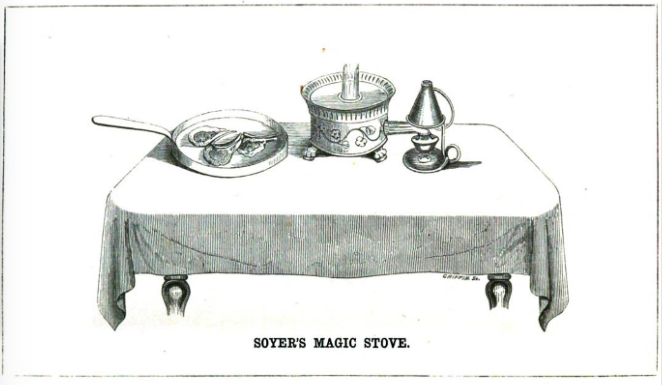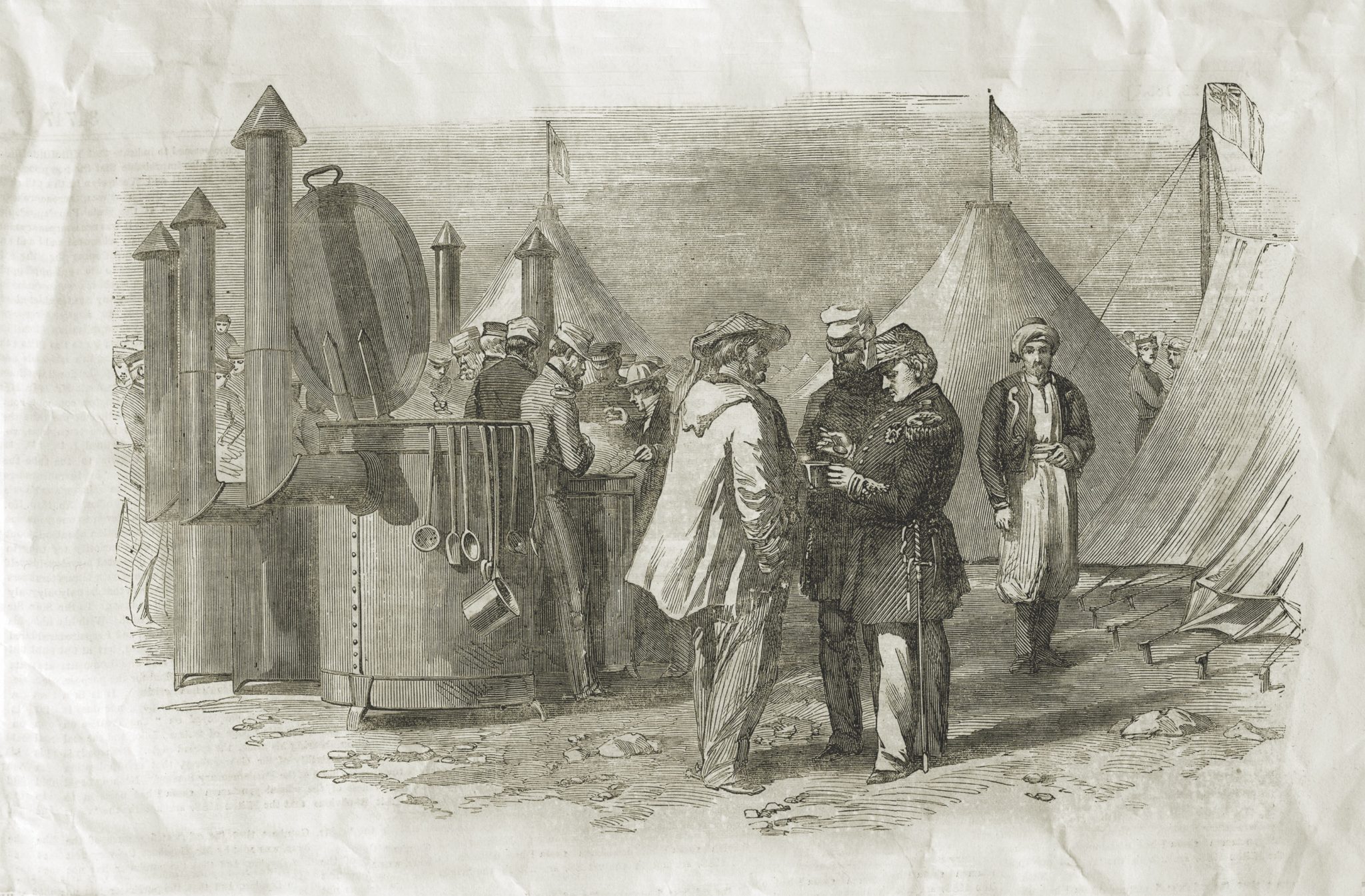Were they mere mortals after all?
Some time ago while standing in front of my fridge, door open, I was struck with the, “Old Mother Hubbard” syndrome. Visions sprang to mind of shuffling along, tin mug in hand, just one of many poor wretches in a soup kitchen line-up. Boldly demanding more. In thinking of soup kitchens…
The following is an account of two great contributors to mankind, Florence Nightingale, an English nurse, and Alexis Soyer, a French chef.
Few would argue that Florence Nightingale epitomised Victorian propriety.
Most have forgotten Alexis Soyer who was characterised more as an artistic and liberal thinker. A bit of a peacock as the saying goes.
My research, however, indicates by the omissions in their own written accounts that they, the heroes of this story, were perhaps mere mortals after all. The reader will decide.
Florence Nightingale is well remembered as the founder of a nursing order.
She was also revered as a saintly vision by so many suffering and wounded soldiers during the bloody Crimean War of 1845. From her ministering to the sick by the feeble light of a hurricane lamp, Miss Nightingale became immortalised as, “The lady with the lamp.”

But, Alexis Soyer, who was he?
In the mid-nineteenth century, he was perhaps as equally well known as Miss Nightingale was, but for very different reasons.
One was a peacock and the other a Nightingale. But both cared deeply about their fellow man.
Alexis was a Frenchman, an author, a flamboyant egocentric, also a culinary genius. His dress startled many with voluminous lapels and deep cuffs of lavender watered silk; very baggy trousers, with lavender stripes down the seams; very shiny boots and quite a very glossy hat; his attire being completed by tightly-fitting gloves.
His accomplishments toward mass food preparations were, however, monumental and changed forever the methods of institutional cooking.

Soyer was born in 1889 and during his fifty-year life-span he prospered within those illustrious English kitchens (if you can believe that) of the time. He commanded the gastronomic domains of notables such as Prince Polignac, the Duke of Sutherland and the Marquis of Waterford.
On the day of Queen Victoria’s Coronation, Soyer staged a triumphant breakfast for two thousand patrons of so-called “proper standing”. Other such culinary extravaganzas won him great accolades from those who could afford the expense. The publishing of his books on the subject of food and its history served to fortify his reputation almost to the point of legend.

Soyer’s capacity to invent and create led to the Patent Magic Stove, the first portable camp stove.

Other discoveries were; military hard rations, the Scutari Teapot and various sauces bottled by Messrs. Crosse and Blackwell.

Soyer became the centre of curiosity while visiting posh London restaurants. Surrounded by Lords and Ladies he would demonstrate the virtues of his Lilliputian magic stove upon a tabletop. That device became the standard kitchen kit on board Her Majesty’s Ships of war and Queen Victoria commissioned Soyer to design a galley which became the standard kitchen on board those same vessels.
He also created field kitchens.

G39WYE The celebrated chef Alexis Soyer demonstrates his field kitchen for camp and bivouac in the Crimea, to Lord Rokeby and general Pelissier Date: 1855
Perhaps Soyer’s greatest claim to culinary excellence was his history-making tenure in 1837 as head chef in the sacrosanct kitchens of the London Reform Club. But, as history would later prove, Chef Soyer, apart from his palate-swooning society’s well-to-do, he was a generous humanitarian who dedicated himself to the needs of his suffering fellow man.

Fresh air. Sunlight. Good food. Good Company.
I would suggest that it is a Recipe Made in Heaven.
Chaucer
More to come next week.
BLOG COMMENTS POWERED BY DISQUS



















































